Search Results
Showing results 1301 to 1320 of 2059

Snake Kite
Source Institutions
In this activity, learners will explore the physics of air by making a snake kite.

EEEEK--A Mouse!
Source Institutions
In this activity, learners explore the concept of how engineering solved the problem of human/computer interface.
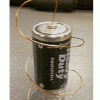
Simple Spinner
Source Institutions
In this activity, learners create a tiny electric, motorized dancer. Learners use the interactions of magnetism and electric current to make a wire spin, while displaying the Lorentz Force in action.
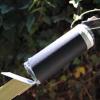
Periscope
Source Institutions
In this activity, learners construct a device that allows them to look over ledges or around corners.
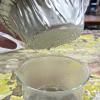
Wonderful Weather
Source Institutions
In this activity, learners conduct three experiments to examine temperature, the different stages of the water cycle, and how convection creates wind.

Energetic Water
Source Institutions
In this activity, learners explore how hot and cold water move. Learners observe that temperature and density affect how liquids rise and fall.

Parachute Parade
Source Institutions
In this engineering activity, learners design parachutes to give toy figures safe landings. This activity is great for practicing an important STEM skill--changing only one variable at a time.
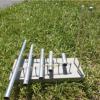
Metallophone
Source Institutions
In this activity, learners explore sound by constructing an instrument using some metal pipes, rubber bands, and a baseboard.

Katta Villayatu
Source Institutions
In this activity, learners play a game from India similar to Tic-Tac-Toe. Players take turns placing coins on the game board and sliding the coins along the spaces.
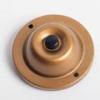
Two Button Buzzer Circuit
Source Institutions
In this activity, learners explore an everyday situation, where either of two or more buttons can ring a buzzer.

Cloudy Globs: Can You Make a White Gel From Two Clear Liquids?
Source Institutions
Using household materials, learners can make white gooey globs from clear solutions. Alum, dissolved in water, reacts with the hydroxide in ammonia to create aluminum hydroxide.
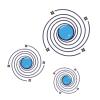
Expanding Balloon Universe
Source Institutions
In this activity, learners will discover how our universe is continuously expanding.
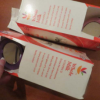
Telescoping Periscope
Source Institutions
In this activity, learners explore the many uses of periscopes and how this simple device was designed and is used in many applications.
Peppy's Day in the Park
Source Institutions
In this math activity, learners build Peppy the dog the best trail and park for running around.
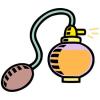
Make Your Own Perfume
Source Institutions
In this activity about olfaction (7th activity on the page), learners use natural ingredients to concoct their own perfume.
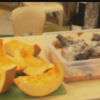
The Decayed Pumpkin
Source Institutions
In this "Sid the Science Kid" activity from Episode 106: My Mushy Banana, learners explore the effects of decay by comparing and contrasting something (an old pumpkin) that's decayed with the same thi
Stack-o-Pennies Shop
Source Institutions
In this math activity, learners pretend there is a special store that lets you pay for toys by their height in pennies.

Think Fast!: Just How Quick Are You?
Source Institutions
This is an activity about reaction times. Just how quickly must an NHL goalie respond to save a shot, and how does your reaction time compare?

Puff Mobile
Source Institutions
In this engineering activity, challenge learners to design a car using only 3 straws, 4 Lifesavers™, 1 piece of paper, 2 paper clips, tape, and scissors.
Take a Guess
Source Institutions
In this activity, learners use what they know about probability to figure out what is in a mystery bag. Learners analyze data to guess how many of each color crayons are in the bag.
